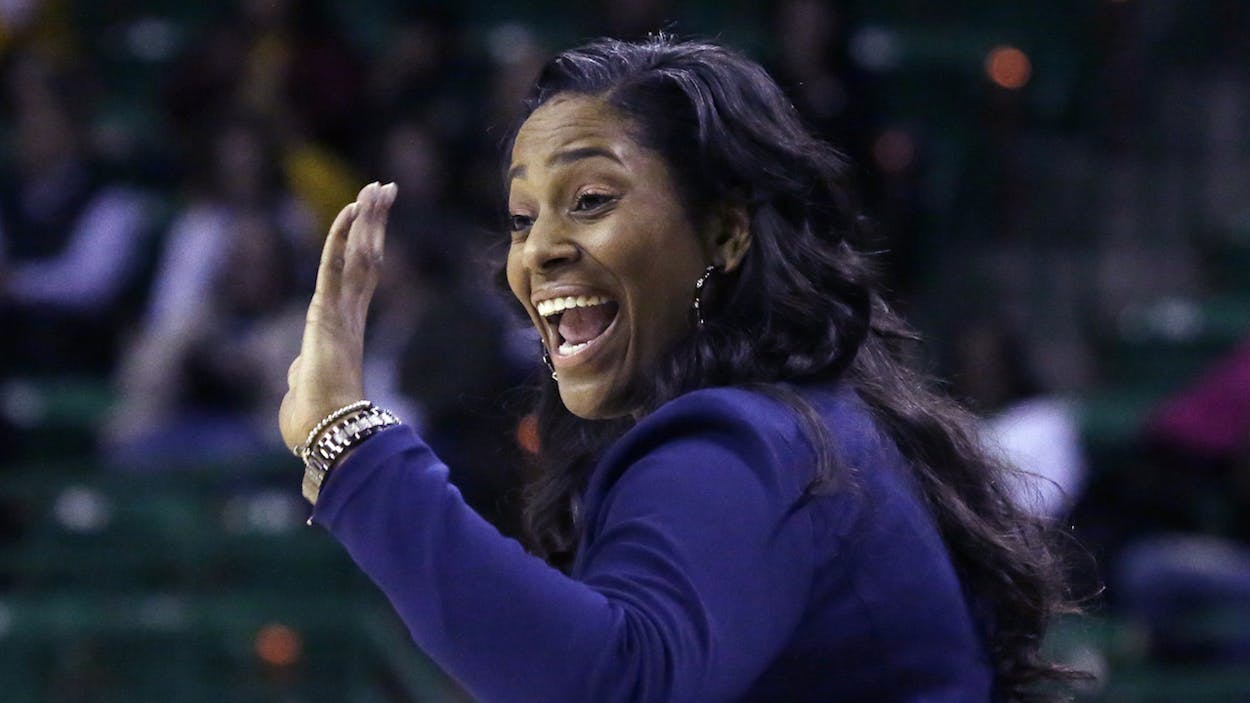Last week, Prairie View A&M fired its women’s basketball coach. Dawn Brown, who had stepped into the role full-time in 2014 after serving on an interim basis, led the Panthers to a 13-15 record this year—but it wasn’t her record that will keep her from coaching Prairie View next season. Rather, it’s a potential Title IX violation that’s cooled the school on Brown’s leadership.
Specifically, Brown suspended two players on her team for being in a relationship. The two filed a Title IX complaint, which prevents discrimination on the basis of gender—a law that’s been applied, in recent years, to prevent discrimination on the basis of sexual orientation because the gender of the people involved tends to cause the issue.
Brown claims that the suspension wasn’t because the two players dating were both women, though—she says that it’s because the team’s rules stated that “Players may not have nonprofessional relationships with other players, coaches, managers trainers or any other persons affiliated” with the program. She told USA Today that she plans to appeal the firing:
Brown said she instituted the rule after an assistant coach was fired for having an inappropriate relationship with a player. Brown said she “collaborated with my Title IX office in drafting” the rule. Brown said the two former players were suspended indefinitely but retained their scholarships and remain at the school. Brown also said the former players were punished for breaking other team rules that she declined to specify.
Brown said the decision to remove the players “was extremely difficult for me but was made with consultation, encouragement and approval” of the athletics director.
Brown’s agent, Garry Rosenfield, said the school gave his client a choice to resign or be terminated for cause. “We definitely think this is a case of scapegoating,” he said.
The situation obviously presents a challenge. Policies that prevent teammates from dating, by default, target gay, lesbian, and bisexual students on single-gender teams. If the policy was drafted in collaboration with the Title IX coordinator at Prairie View A&M, and Brown is the only one facing a discipline, it’s understandable why she’s upset. The idea that it’s a distraction when players are involved in interpersonal relationships with people connected with the program isn’t an uncommon theory—but at the same time, female basketball players who are gay have reason to be suspicious of policies that seem to target them.
Brittney Griner, the Phoenix Mercury center who played college ball at Baylor, told ESPN in 2013 that coach Kim Mulkey took steps to challenge the perception that the women on the team were lesbians. (Griner married her partner, Dallas Wings forward Glory Johnson, last year, but asked for an annulment 28 days into the marriage.)
More recently, two players at Pepperdine University sued the school for discrimination after coach Ryan Weisenberg told the team that “Lesbianism is not tolerated on this team. Lesbianism is a big concern in women’s basketball.” In 2007, Penn State coach Rene Portland resigned amid allegations that she forced gay players off of the team.
Ultimately, there could be a number of justifications for a rule that prevents players on the same team from dating, and we won’t assume that Brown’s institution of the rule was aimed at targeting gay players. But in practical terms, that’s who the rule effects, and in a time when Title IX is being more aggressively enforced, that’s something that Prairie View A&M shouldn’t be involved in. We’ll learn more if Brown appeals about who exactly helped shape the policy, but whatever we find out, it seems to be a policy that violated Title IX.








